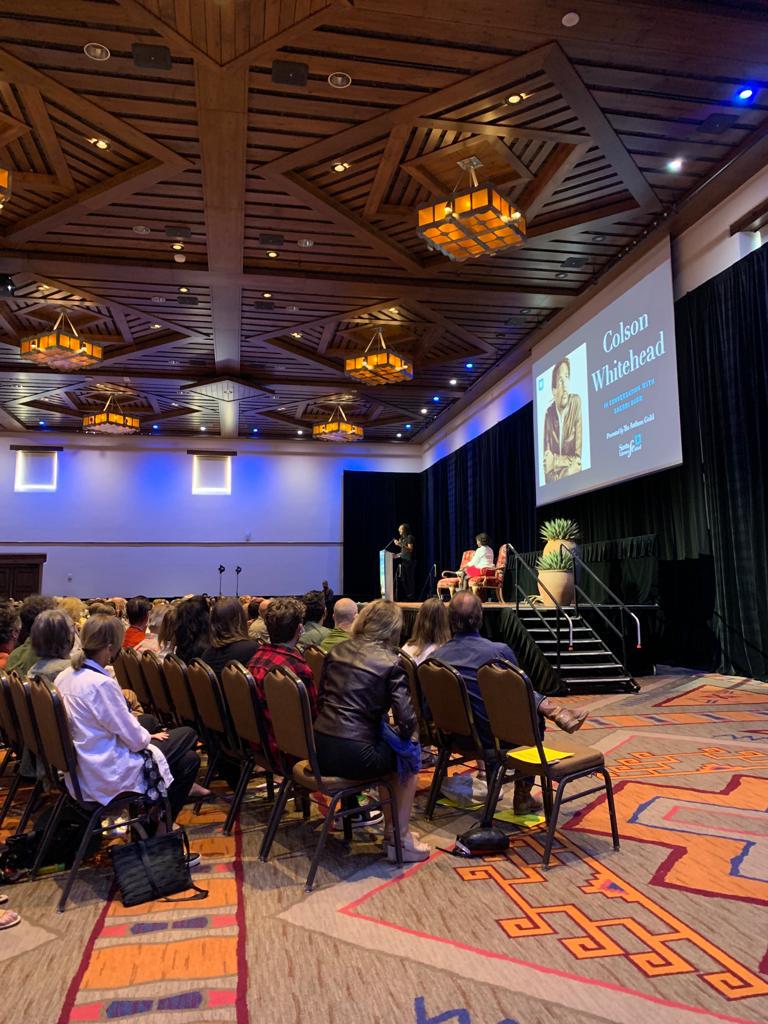‘We have discussions then we stop talking about it’: Colson Whitehead on racism in America
‘The Underground Railroad’ author joked he would dedicate his speaking time to a discussion of Critical Race Theory as he kicked off the inaugural event in New Mexico

Colson Whitehead brought his characteristic wit to the sensitive subject of America’s long history of racial tension as he opened the inaugural Santa Fe Literary Festival on Friday night. “For the next hour I’m going to talk about a subject very dear to my heart: Critical Race Theory,” he joked early on, sparking much laughter and applause from a captivated audience gathered at the Santa Fe Community Convention Center.
Instead, Whitehead read from his recent novel Harlem Shuffle, a New York family crime saga that plays out between 1959 and 1964. To the delight of fans he also previewed material from forthcoming sequel Crook Manifesto which is set in the 1970s. The book is due to be published next summer as the second part in a planned Harlem trilogy centred on furniture salesman-turned-crook Ray Carney. Whitehead said he was pleased to preview his work in progress, but also wary. “That’s not a great line,” he remarked of one sentence during the reading. “I’m gonna fix that.”
After those entertaining extracts from his work, Whitehead was joined in conversation by author and University of New Mexico law professor Sherri Burr. Turning to Whitehead’s two Pulitzer Prize-winning historical novels The Underground Railroad and The Nickel Boys, Burr asked whether when it comes to race relations in America it sometimes feels that things have not changed at all.

“Sure,” replied Whitehead. “Growing up in New York in the Eighties, my parents definitely counselled me on how to carry myself so that I would not become someone who was reaching for his wallet and they think I’m reaching for a gun. We have high profile police brutality cases, like the one that ends Harlem Shuffle in 1964. We have discussions, and then we stop talking about it. It happens again, with Rodney King, and we’re talking and talking and then we stop. Then it’s George Floyd and Tamir Rice. It’s been a feature of my life, and we didn’t do anything about it, so it will continue to be.”
Join our commenting forum
Join thought-provoking conversations, follow other Independent readers and see their replies
Comments
Bookmark popover
Removed from bookmarks